How Does a Roller Mill Work?
Join us as we take a close look at how roller mills work, their components, and the processes that allow them to efficiently transform materials day in and day out.
Join us as we take a close look at how roller mills work, their components, and the processes that allow them to efficiently transform materials day in and day out.
A roller mill is an essential piece of equipment used across various industries for the grinding and reduction of materials into smaller particles. This machine harnesses the power of mechanics and physics to achieve consistent and precise particle size by crushing and grinding materials between two or more mounted rollers.
In a roller mill, material is fed through a hopper where it’s caught between the rollers. As the rollers turn against one another or a fixed plate, the material is crushed and ground into smaller particles. The size of these particles depends largely on the gap between the rollers, which can be adjusted according to the desired fineness or coarseness.
Roller mills are particularly effective because they apply both pressure and shear force to the materials. This makes them capable of handling a variety of materials, including hard, abrasive substances like ores and soft, pliable substances like grains. Their efficiency and adaptability make them invaluable in settings ranging from agricultural milling to industrial materials processing.
In our next sections, we’ll explore how roller mills are adapted and utilized in different industries and the benefits they bring to these applications.
Keeping a roller mill in top condition is crucial for ensuring optimal performance and extending its operational lifespan. Regular maintenance and the use of high-quality parts play pivotal roles in this endeavor, directly impacting the efficiency, output quality, and reliability of the milling process.
Routine maintenance is essential for keeping roller mills running smoothly. This includes regular inspections to check for signs of wear and tear, scheduled lubrication to reduce friction and prevent overheating, and cleaning to avoid contamination that could impair the mill’s functionality. Such maintenance ensures that the mill operates at peak efficiency, prevents unexpected downtime, and maintains the quality of the processed products.
The quality of the parts used in roller mills significantly affects their performance and durability. High-quality parts are engineered to meet exact specifications and withstand the demands of continuous operation, which is critical in industrial settings. These components, such as precision-engineered rollers, robust bearings, and durable drive systems, are more resistant to wear and less likely to fail, ensuring consistent operation and reducing the need for frequent replacements.
Moreover, investing in parts that have been enhanced through advanced techniques such as hardfacing can further increase their durability. Hardfacing applies a wear-resistant layer to the parts most vulnerable to erosion and abrasion, thereby extending their service life and enhancing the mill’s overall efficiency.
Don’t let worn parts and inefficient operations slow down your productivity. Upgrade your roller mill with high-quality parts from Midwest Hardfacing. Our parts are designed to improve performance and extend the lifespan of your milling equipment. Click below to explore our durable, precision-crafted components and find out how they can benefit your operations.
Ensuring that your roller mill remains operational for years involves more than just handling breakdowns as they occur. Proactive strategies and regular care are key to extending the lifespan of this crucial equipment. Here are five essential tips for maintaining your roller mill in optimal condition:
The condition of the rollers is vital to the mill’s performance. Regular checks for wear and tear and adjustments to the roller alignment and spacing help maintain the quality of the product and prevent excessive wear.
Adequate lubrication reduces friction between moving parts, minimizing wear and protecting against overheating. Establish and adhere to a lubrication schedule that meets the specific needs of your roller mill’s make and model.
When parts need to be replaced, opt for high-quality ones that can withstand the rigors of mill operation. High-quality parts are an investment that can reduce the frequency of replacements and maintenance interventions.
Regular cleaning to remove dust, debris, and any material build-up is essential. Build-up can lead to operational inefficiencies and even damage to the mill. Ensuring the mill and its components are clean helps maintain its efficiency and safety.
Avoid overloading the mill beyond its capacity, as this can strain the system and lead to premature wear. Understanding and controlling the feed rate and material hardness can significantly extend the life of the mill.
By following these tips, you can ensure that your roller mill operates efficiently for a longer period, thereby maximizing your investment and maintaining consistent production quality.
Keep your roller mills performing at their best with expert solutions from Midwest Hardfacing. Whether you need assistance with maintenance, high-quality parts, or custom hardfacing services, we have the expertise to help you maximize the lifespan and efficiency of your equipment. Contact us today to learn more about our services and how we can assist in enhancing your milling operations.
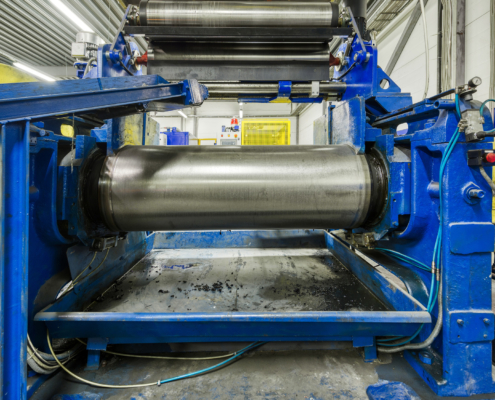 https://midwesthardfacing.com/wp-content/uploads/2024/07/The-Ins-and-Outs-of-Roller-Mill-Adjustments.jpg
1250
2000
Abstrakt Marketing
/wp-content/uploads/2024/03/Midwest-Hardfacing-1.png
Abstrakt Marketing2025-12-09 08:47:212026-01-11 08:19:04How You Can Improve Milling Efficiency with Hardfaced Journals
https://midwesthardfacing.com/wp-content/uploads/2024/07/The-Ins-and-Outs-of-Roller-Mill-Adjustments.jpg
1250
2000
Abstrakt Marketing
/wp-content/uploads/2024/03/Midwest-Hardfacing-1.png
Abstrakt Marketing2025-12-09 08:47:212026-01-11 08:19:04How You Can Improve Milling Efficiency with Hardfaced Journals https://midwesthardfacing.com/wp-content/uploads/2025/06/IMG_0577.jpeg
2048
1536
Abstrakt Marketing
/wp-content/uploads/2024/03/Midwest-Hardfacing-1.png
Abstrakt Marketing2025-08-11 14:27:062026-01-11 08:19:11What to Look for When Buying a Used Vertical Roller Mill
https://midwesthardfacing.com/wp-content/uploads/2025/06/IMG_0577.jpeg
2048
1536
Abstrakt Marketing
/wp-content/uploads/2024/03/Midwest-Hardfacing-1.png
Abstrakt Marketing2025-08-11 14:27:062026-01-11 08:19:11What to Look for When Buying a Used Vertical Roller Mill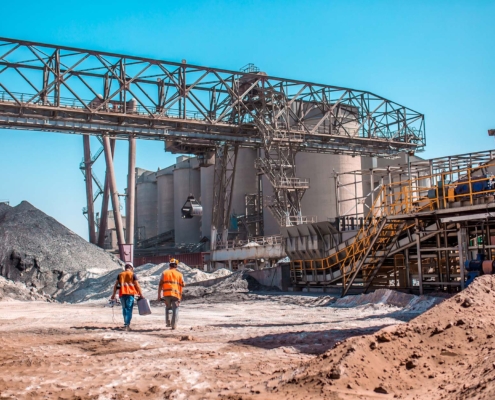 https://midwesthardfacing.com/wp-content/uploads/2025/01/Side-view-of-a-large-mine-operation.jpg
1250
2000
Abstrakt Marketing
/wp-content/uploads/2024/03/Midwest-Hardfacing-1.png
Abstrakt Marketing2025-01-07 09:55:302026-01-11 08:19:23Reviewing Raymond Mill Sizes: The Basics
https://midwesthardfacing.com/wp-content/uploads/2025/01/Side-view-of-a-large-mine-operation.jpg
1250
2000
Abstrakt Marketing
/wp-content/uploads/2024/03/Midwest-Hardfacing-1.png
Abstrakt Marketing2025-01-07 09:55:302026-01-11 08:19:23Reviewing Raymond Mill Sizes: The Basics https://midwesthardfacing.com/wp-content/uploads/2024/07/The-Ins-and-Outs-of-Roller-Mill-Adjustments.jpg
1250
2000
Abstrakt Marketing
/wp-content/uploads/2024/03/Midwest-Hardfacing-1.png
Abstrakt Marketing2024-12-30 12:51:192026-01-11 08:19:24Reviewing Key Roller Mill Parts for Bentonite Processing Plants
https://midwesthardfacing.com/wp-content/uploads/2024/07/The-Ins-and-Outs-of-Roller-Mill-Adjustments.jpg
1250
2000
Abstrakt Marketing
/wp-content/uploads/2024/03/Midwest-Hardfacing-1.png
Abstrakt Marketing2024-12-30 12:51:192026-01-11 08:19:24Reviewing Key Roller Mill Parts for Bentonite Processing Plants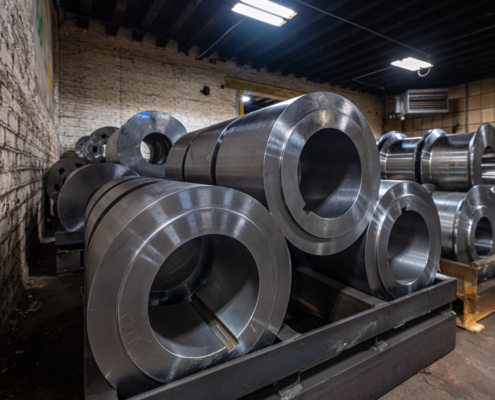 https://midwesthardfacing.com/wp-content/uploads/2024/05/Rollers-for-a-roller-mill.jpg
1250
2000
Abstrakt Marketing
/wp-content/uploads/2024/03/Midwest-Hardfacing-1.png
Abstrakt Marketing2024-12-30 12:44:532026-01-11 08:19:25The Ins and Outs Of a Roller Mill’s Structure
https://midwesthardfacing.com/wp-content/uploads/2024/05/Rollers-for-a-roller-mill.jpg
1250
2000
Abstrakt Marketing
/wp-content/uploads/2024/03/Midwest-Hardfacing-1.png
Abstrakt Marketing2024-12-30 12:44:532026-01-11 08:19:25The Ins and Outs Of a Roller Mill’s Structure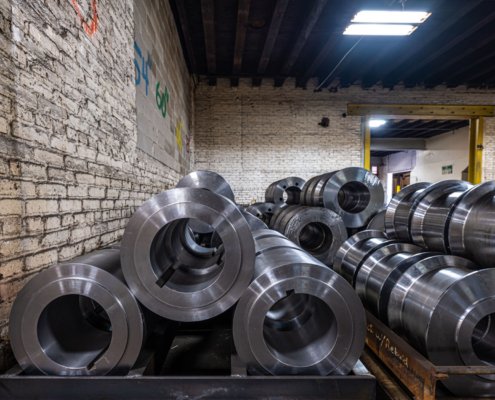 https://midwesthardfacing.com/wp-content/uploads/2024/10/Roller-mill-parts.jpg
1250
2000
Abstrakt Marketing
/wp-content/uploads/2024/03/Midwest-Hardfacing-1.png
Abstrakt Marketing2024-10-25 11:01:122026-01-11 08:19:26Williams Vs. Bradley Roller Mills: What You Need to Know
https://midwesthardfacing.com/wp-content/uploads/2024/10/Roller-mill-parts.jpg
1250
2000
Abstrakt Marketing
/wp-content/uploads/2024/03/Midwest-Hardfacing-1.png
Abstrakt Marketing2024-10-25 11:01:122026-01-11 08:19:26Williams Vs. Bradley Roller Mills: What You Need to Know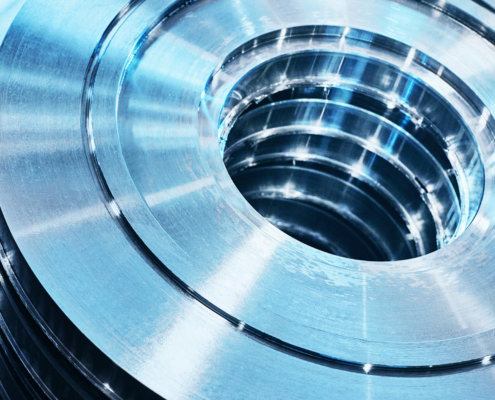 https://midwesthardfacing.com/wp-content/uploads/2024/10/Closeup-of-rollers-blanks.jpg
1250
2000
Abstrakt Marketing
/wp-content/uploads/2024/03/Midwest-Hardfacing-1.png
Abstrakt Marketing2024-10-25 09:30:142026-01-11 08:19:27The Role of Roller Mill Parts in Different Industries
https://midwesthardfacing.com/wp-content/uploads/2024/10/Closeup-of-rollers-blanks.jpg
1250
2000
Abstrakt Marketing
/wp-content/uploads/2024/03/Midwest-Hardfacing-1.png
Abstrakt Marketing2024-10-25 09:30:142026-01-11 08:19:27The Role of Roller Mill Parts in Different Industries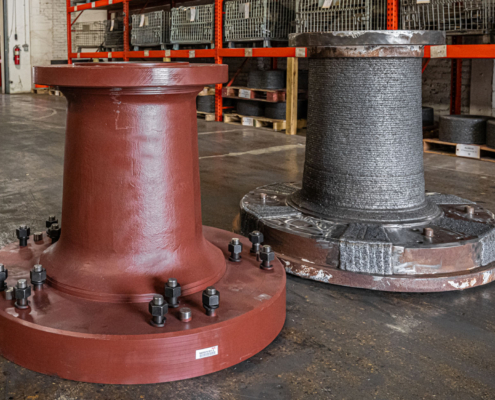 https://midwesthardfacing.com/wp-content/uploads/2024/05/Jounrals-compared-before-and-after-hardfacing.jpg
1250
2000
Abstrakt Marketing
/wp-content/uploads/2024/03/Midwest-Hardfacing-1.png
Abstrakt Marketing2024-10-16 13:19:492026-01-11 08:19:27What Is Tungsten-Carbide Hardfacing?
https://midwesthardfacing.com/wp-content/uploads/2024/05/Jounrals-compared-before-and-after-hardfacing.jpg
1250
2000
Abstrakt Marketing
/wp-content/uploads/2024/03/Midwest-Hardfacing-1.png
Abstrakt Marketing2024-10-16 13:19:492026-01-11 08:19:27What Is Tungsten-Carbide Hardfacing?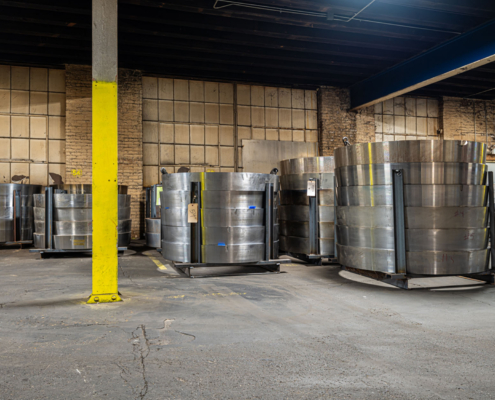 https://midwesthardfacing.com/wp-content/uploads/2024/06/Large-rings-in-warehouse-for-roller-mill.jpg
1250
2000
Abstrakt Marketing
/wp-content/uploads/2024/03/Midwest-Hardfacing-1.png
Abstrakt Marketing2024-10-16 13:09:262026-01-11 08:19:28Raymond Roller Mills Vs. Williams Roller Mills: What You Need to Know
https://midwesthardfacing.com/wp-content/uploads/2024/06/Large-rings-in-warehouse-for-roller-mill.jpg
1250
2000
Abstrakt Marketing
/wp-content/uploads/2024/03/Midwest-Hardfacing-1.png
Abstrakt Marketing2024-10-16 13:09:262026-01-11 08:19:28Raymond Roller Mills Vs. Williams Roller Mills: What You Need to Know
Midwest Hardfacing provides high-quality parts and services for roller and hammer mill across the world.

 How to Choose the Right Roller Mill for Your Industrial or Mining Needs
How to Choose the Right Roller Mill for Your Industrial or Mining NeedsThis site uses cookies. By continuing to browse the site, you are agreeing to our use of cookies.
OKLearn moreWe may request cookies to be set on your device. We use cookies to let us know when you visit our websites, how you interact with us, to enrich your user experience, and to customize your relationship with our website.
Click on the different category headings to find out more. You can also change some of your preferences. Note that blocking some types of cookies may impact your experience on our websites and the services we are able to offer.
These cookies are strictly necessary to provide you with services available through our website and to use some of its features.
Because these cookies are strictly necessary to deliver the website, refusing them will have impact how our site functions. You always can block or delete cookies by changing your browser settings and force blocking all cookies on this website. But this will always prompt you to accept/refuse cookies when revisiting our site.
We fully respect if you want to refuse cookies but to avoid asking you again and again kindly allow us to store a cookie for that. You are free to opt out any time or opt in for other cookies to get a better experience. If you refuse cookies we will remove all set cookies in our domain.
We provide you with a list of stored cookies on your computer in our domain so you can check what we stored. Due to security reasons we are not able to show or modify cookies from other domains. You can check these in your browser security settings.
We also use different external services like Google Webfonts, Google Maps, and external Video providers. Since these providers may collect personal data like your IP address we allow you to block them here. Please be aware that this might heavily reduce the functionality and appearance of our site. Changes will take effect once you reload the page.
Google Webfont Settings:
Google Map Settings:
Google reCaptcha Settings:
Vimeo and Youtube video embeds:
